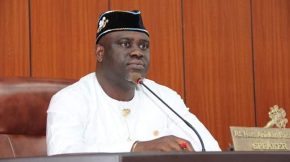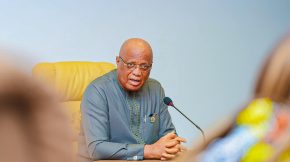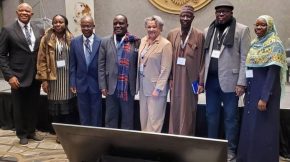USAID State2State Holds Quarterly Conflict Mitigation & Prevention Dialogue In Akwa Ibom
Share
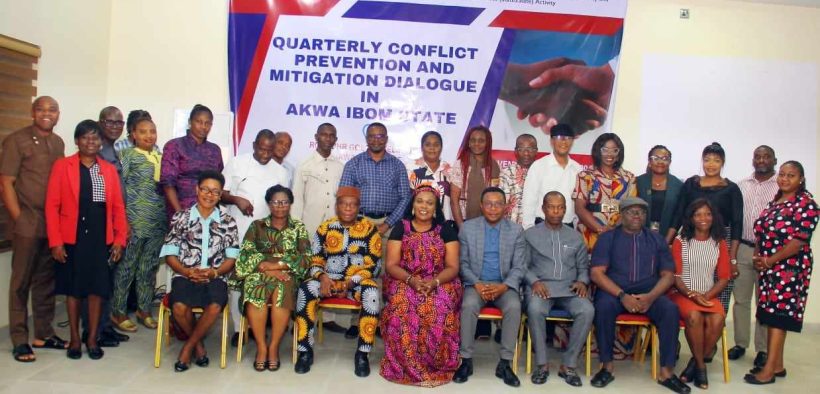
By Udeme Hosea
As part of its reform intervention in its partner states, which seeks to increase sub national governments’ operations by strengthening governance systems in public finance management and core service delivery sectors, promote citizens engagement, gender and social inclusion and conflict mitigation; USAID Nigeria State Accountability, Transparency and Effectiveness (State2State) Activity held a one day Conflict prevention and mitigation dialogue in Uyo, Akwa Ibom state.

Mr Borve Paago-Imabel, the State Team Lead, USAID Nigeria (state2state)
The event which held in Uyo on November 23, 2023, provided opportunity for stakeholders to deliberate on key drivers of conflict as identified from the Midterm Conflict Assessment Framework (CAF) recently conducted in the state. These include land/boundary disputes, cultism/cult activities, natural resources as well as electoral/political activities.
In his opening remarks, Mr Borve Paago-Imabel, the State Team Lead, USAID Nigeria (state2state), said the purpose of the state Accountability, Transparency and Effectiveness Activity is to increase accountability and transparency on public financial management and service delivery in priority sectors of Basic Education, Primary Health and Water, Sanitation and Hygiene (WASH) in the targeted states.
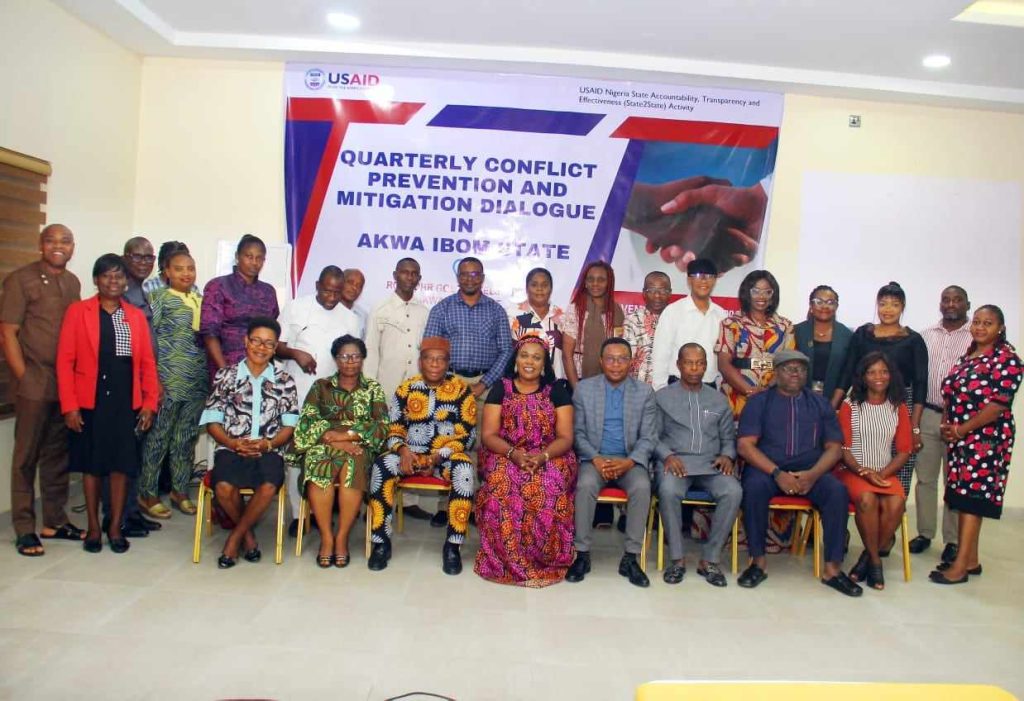
Across section of stakeholders
Paago-Imabel, while appreciating USAID State2state partners for their commitments in ensuring accountability, transparency and effectiveness as top priorities in basic sectors, hinted that, the objective of the workshop is to ascertain the dynamics of Violent conflicts and make recommendations on strategies for prevention.
Mr Cosmos Dinee, the conflict specialist, while facilitating the technical session led participants to analyze the implications of violent conflicts on public financial management and it’s effect on service delivery in the priority sectors of Basic Education, Primary Health and Water Sanitation and Hygiene (WASH). Stakeholders and participants identified such implications to include: Abandonment/delay in project implementation, reduction or outright loss of access to education, health care facility as well as water, sanitation and hygiene etc, as a result of conflict.
Speaking on the participation and role of women in conflict prevention,
Mrs Munachiso Odulana, the capacity building and citizens engagement specialist, asserted that women are crucial partners/actors in economic recovery, social cohesion and peace building.
While explaining Gender Roles in conflict mitigation, she observed that, for sustainability of preventing reoccurrence of violent conflicts, women’s equal participation in the peace process is essential as they are caretakers of families.
Mrs Odulana highlighted that engaging children early in building values and the need for women to form network of women in peace building and conflict mitigation were vital approaches to prevention of violent conflicts.
The dialogue also highlighted, increase in unplanned government expenditure, abandoned projects, reduction in enrolment, increase in vulnerability of out of school children and reduction of quality education as implications of violence in basic education. On health care; facilities maybe vandalized leaving the area without asses to health care, increase in morality rate, reduction in access to health care by citizens and corrupt practices were named as implications of conflict in Primary Health.
In their good will messages, the state coordinators of Breakthrough Action, Mr Bassey Nsa, and President’s Malaria Initiative for states (PML-S), Mr. Ime Akpan both commended USAID State2state for adding value to the priority sectors through consistent engagements. On his part, the Director of the Center for Alternative Dispute Resolution (CADR), Barr. Anietie Inyang thanked USAID State2State for their partnership and support which according to him has impacted greatly on the services of the center. He also informed the audience that they were at liberty to refer issues of conflict between persons to the center for peaceful resolution.
Stakeholders recommended that, community leaders should re-enforce family values, increase media participation, shun sponsorship of cultism in the state and the need to review anti- cultism laws.
They also suggested peace clubs in secondary schools, and sensitization of youths on the consequences of cultism and other crimes.
Highpoint of the workshop were group work and interactive sessions involving various stakeholders who participated in the workshop representing women, youths, CSOs, state partners, professional bodies and private sector operatives.




